What is a range cooker and is this the best option for you?
Exactly what is a range cooker and how do they differ from other types of cooker? We take a look at this style of kitchen appliance and explain how to choose the right model for you
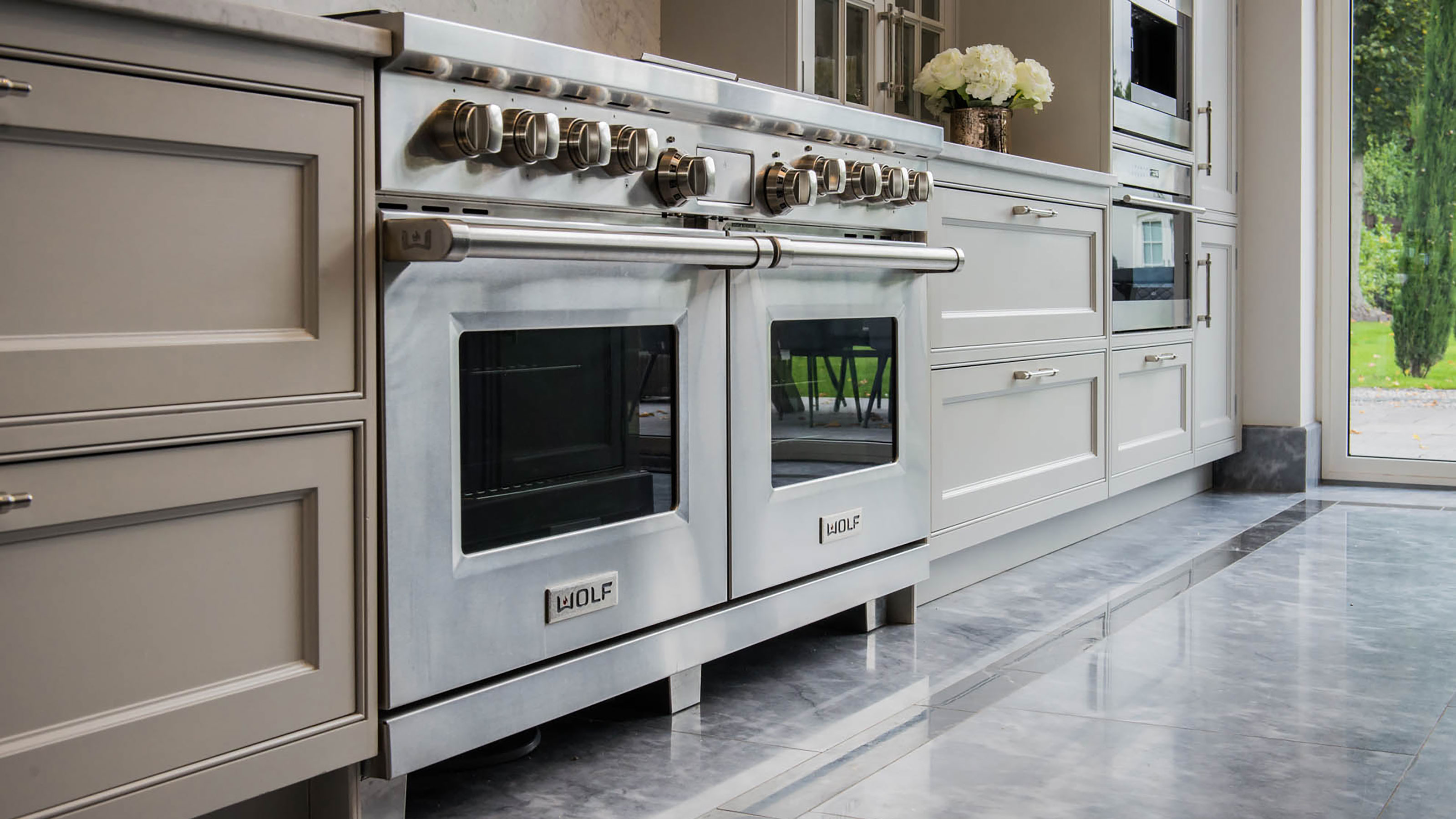
Bring your dream home to life with expert advice, how to guides and design inspiration. Sign up for our newsletter and get two free tickets to a Homebuilding & Renovating Show near you.
You are now subscribed
Your newsletter sign-up was successful
Just what is a range cooker? We've all heard of them and probably seen them too, but do you know how they are different from other types of cooker and understand the features that set them apart?
To add to the confusion, along with range cookers there are also range-style cookers, which are actually different, although many people now use the two terms interchangeably.
Here, we explain exactly what defines a range cooker, take a look at range-style cookers and explain the alternatives too. We'll also take a look at how much they cost and the various new features now available plus we weigh up their pros and cons.
What is a range cooker?
There is sometimes a little confusion over what a range cooker is and the term is now used far more freely than it once was.
Range cookers were traditionally fired by oil or solid fuel and featured a number of hotplates and ovens. Many worked on the principle of heat storage as opposed to electricity or gas and for a lot of people, the first thing to spring to mind on hearing the term is the classic AGA.
However, things have come on in leaps and bounds in the world of cookers and these days, the term range cooker is used to describe any freestanding cooker that features two or more roomy ovens, multiple hob burners and a grill. In addition, the best range cookers are available with all kinds of optional extras, making them pretty much customisable.
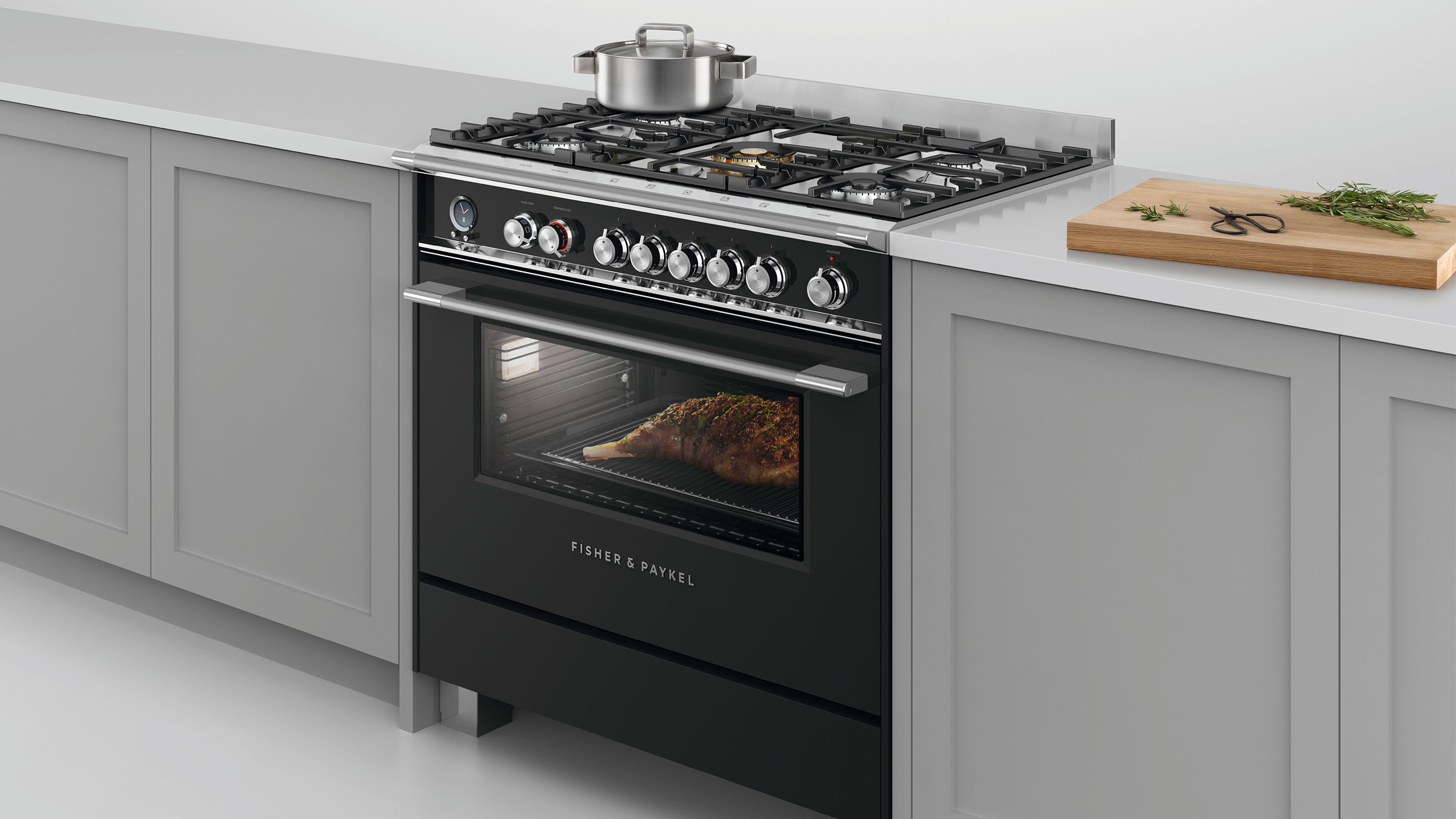
What are heat storage range cookers?
Heat storage range cookers are made from cast iron and use radiant heat from the cast iron ovens to cook the food.
Bring your dream home to life with expert advice, how to guides and design inspiration. Sign up for our newsletter and get two free tickets to a Homebuilding & Renovating Show near you.
AGA, Rayburn and Everhot are probably the best known brands of heat storage range cookers.
If you are asking 'what is an AGA?' it is useful to know that AGAs are very spacious and come in various configurations of multi-level ovens (which will usually include a 'roasting oven', 'baking oven' and 'simmering oven') along with hot plates on top — a 'boiling plate' and a 'simmering plate'.
Although AGAs once ran on oil, these days they rely on electricity. They no longer have to be on all the time either, although they can be if you wish.
"You can turn the tops of the AGA off completely when you don't need them, run the ovens on 'slumber' mode or set them on a timer to come on and off as and when you want them to be ready for use," explains cookery presenter and AGA demonstrator Naomi Hansell
Rayburn cookers are another well known brand of heat storage range cooker. They are now made by AGA and while they are also made of cast iron and feature various ovens with different functions, they can be fuelled by electricity, oil or solid fuel.
In addition, they can also be used to power central heating and heat water. There are three different options: cooker only; cooking and hot water; and cooking, hot water and central heating models.
Rayburn have just launched a range of Heatranger models which not only offer cooking, central heating and hot water but also include HVO-compatible burners which can be adapted to be powered by HVO — 95% hydrotreated vegetable oil and set to have big part to play in the UK reaching the government’s target on reduced carbon emissions.
Finally, Everhot are another well-known brand of heat storage range cooker. Their cookers consume a trickle feed supply of electricity and are purposefully designed to harness and closely mimic how renewable power is generated, making them a great option for those with solar panels.
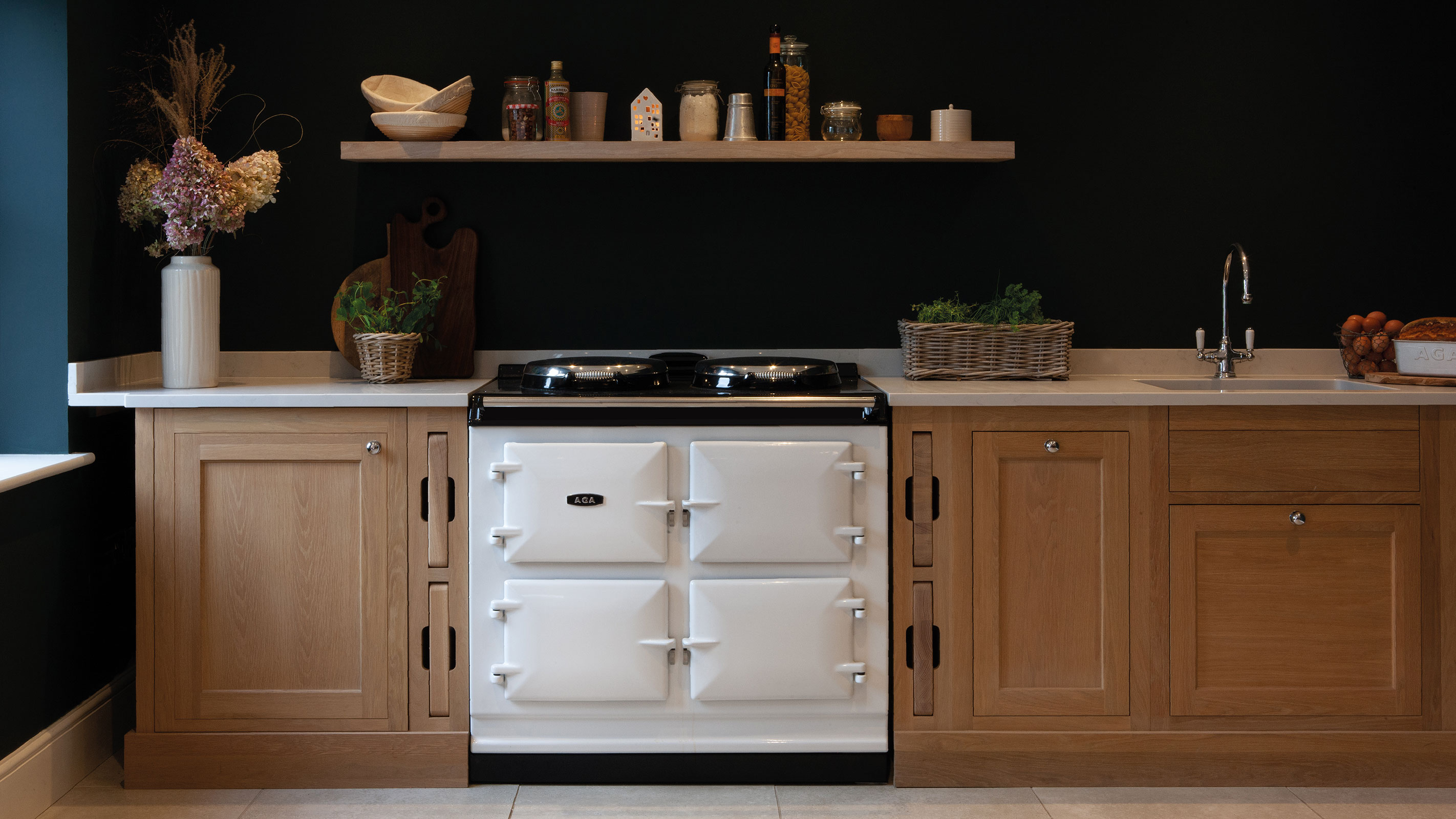
How big are range cookers?
Range cookers vary in size and have the potential to be very large if that is what is required. While it is true that many models are larger than conventional ovens, there are more compact options for those who love the look of ranges but are after small kitchen ideas to make the most of their space. Compact range cookers measuring just 60cm or 70cm in width usually only have a standard four burners, but some come with the option of a wok burner in place of one standard burner. At the other end of the size scale, range cookers are available in widths of up to 220cm — perfect for those who love to cook and entertain large gatherings on a regular basis.
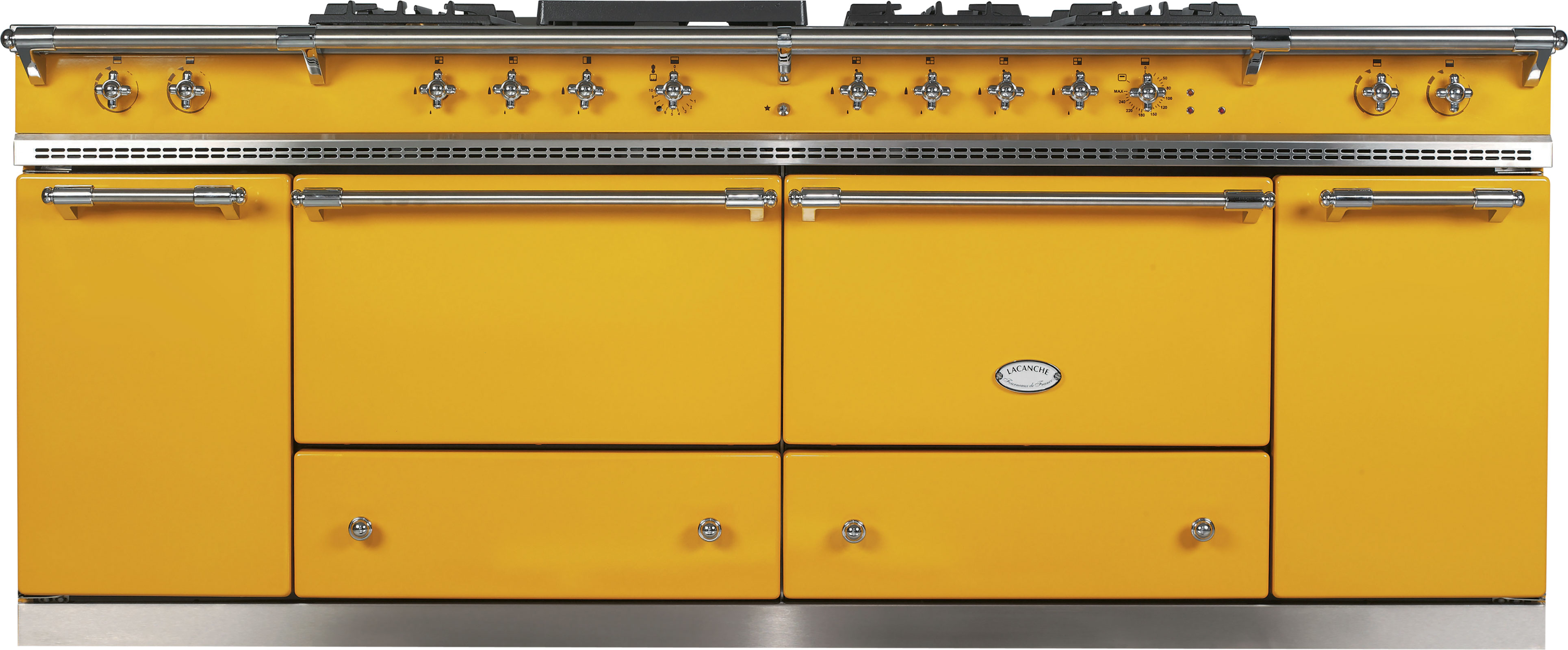
What fuel do range cookers run on?
There are lots of options when it comes to the fuels that can be used to run range cookers. Some are all-electric, others are all-gas and many models are duel fuel, with a gas hob and electric ovens.
How much do range cookers cost?
Just as with conventional cookers and built-in ovens, prices for range cookers vary depending on the brand, size, number of features and optional extras.
Prices start from as little as £450 for small, single oven ranges, rising right up to more than £15,000 for very large professional-style ranges or some models of heat storage range cookers.
What are the benefits of a range cooker?
There are many advantages to owning a range cooker compared to other types of ovens and hobs. Your choice should be based on the way you like to cook, the style of your kitchen and your budget.
Pros of range cookers:
- They make a statement: Range cookers can look really impressive and come in all kinds of styles, finishes and designs that mean they often take centre stage.
- Great cooking flexibility: With all their different ovens and burner sizes there are many different ways you can cook depending on the situation.
- Large capacity ovens: One or two of the ovens of a range cooker will usually be very large making it easy to cook many dishes at once.
- Lots of optional extras: If you love to cook then you will no doubt be drawn by features such as teppanyaki grills, rotisserie and griddle plates.
- Freestanding: You can take your cooker with you should you decide to move.
- Easy to install: Unlike built-in ovens and hobs, range cookers simply slide in ready to be connected to the electricity or gas supply.
Cons of range cookers:
- Pricey: Ranges tend to be more expensive initially when compared to some models of built-in oven.
- Less location flexibility: Unlike built-in ovens, range cookers cannot be set at eye level which could be a dealbreaker for those with issues bending down.
- Harder to achieve the sleek, minimalist look: Rows of matching built-in ovens usually look very contemporary, although there are some very eye-catching modern ranges out there.
- Less suitable for kitchen islands: Kitchen islands tend to work best with built-in ovens and hobs.
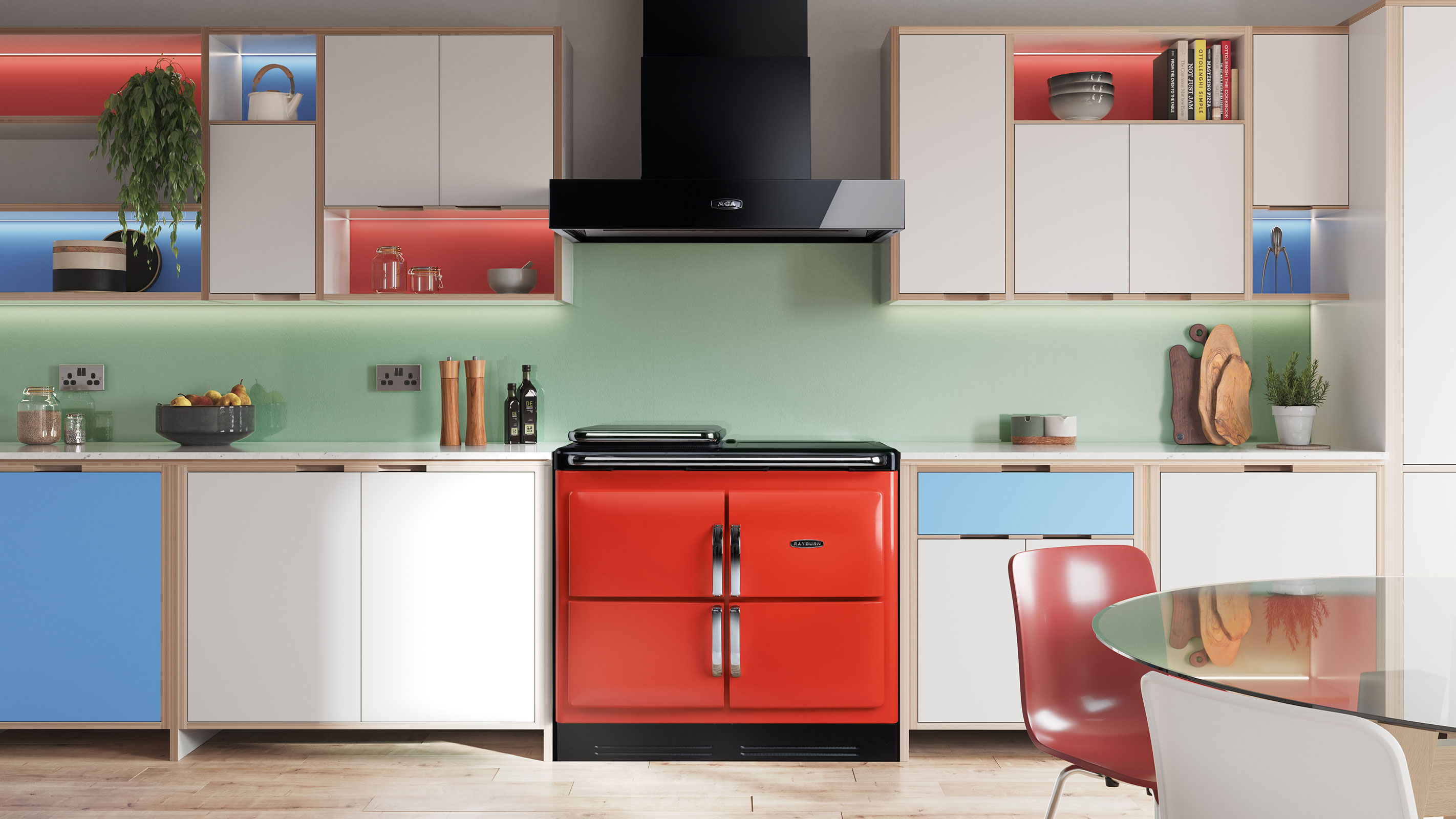
Natasha was Homebuilding & Renovating’s Associate Content Editor and was a member of the Homebuilding team for over two decades. In her role on Homebuilding & Renovating she imparted her knowledge on a wide range of renovation topics, from window condensation to renovating bathrooms, to removing walls and adding an extension. She continues to write for Homebuilding on these topics, and more. An experienced journalist and renovation expert, she also writes for a number of other homes titles, including Homes & Gardens and Ideal Homes. Over the years Natasha has renovated and carried out a side extension to a Victorian terrace. She is currently living in the rural Edwardian cottage she renovated and extended on a largely DIY basis, living on site for the duration of the project.

